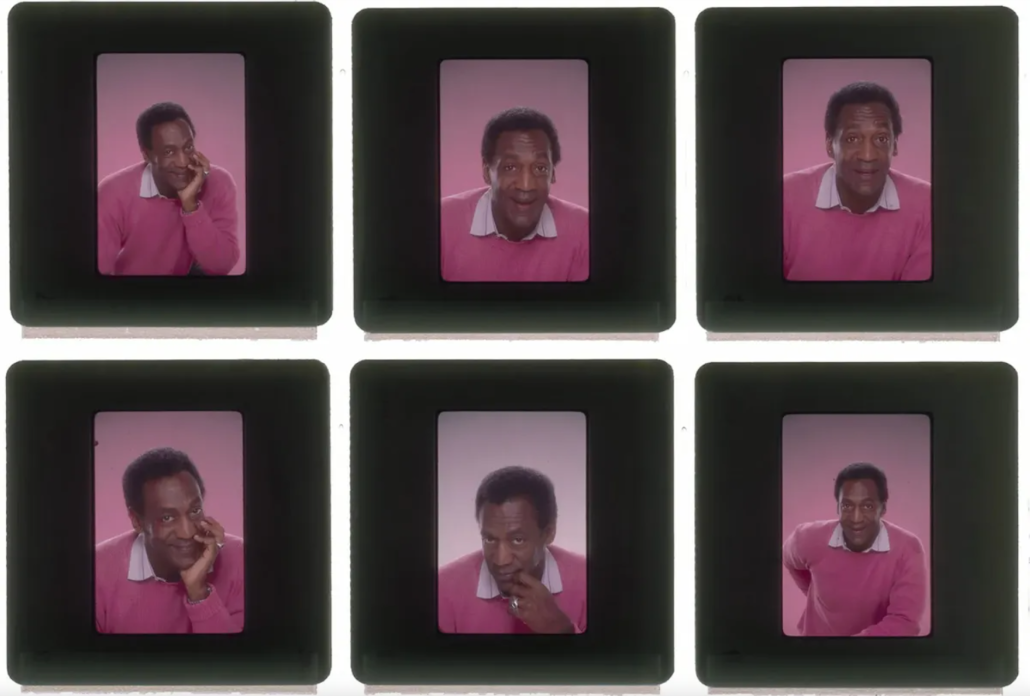‘We Need To Talk About Cosby’ an overdue recap

Twenty years ago, it could’ve been fun to talk about Bill Cosby. He was, after all, a comedian with one of the most groundbreaking careers that won Emmys, Grammys and, most importantly, the hearts and minds of the American public. Now, no one’s laughing.
Compiled into four episodes, Showtime’s new docuseries “We Need To Talk About Cosby” begins by laying out the context of American comedy prior to and during Cosby’s rise to fame, with an emphasis on the role of Black comedians and the types of comedy they presented in order to find success. Known as “America’s Dad,” Cosby solidified himself by becoming palatable to the predominantly white audience of the time.
According to the series, Cosby became popular by “saying things of substance but not making others feel uncomfortable,” unlike notable predecessor Dick Gregory, the “first African-American comic to play to white audiences’’ whose comedical performances highlighted topics such as race, racism and the Civil Rights.
When considering the type of roles Black men would often be cast in around the time of Cosby’s growth in popularity and the impact that his premiere role in the television show “I Spy” had on the entertainment industry, “The reason a Bill Cosby stands out in the ‘60s is because he’s not playing these old, stereotypical Black roles,” said USC cinema professor Todd Boyd.
Boyd explained that it is necessary to recognize the impact Cosby had on the American entertainment industry not only through comedy and television but also on the individual people watching from home who could see themselves represented by him. This explanation for why Cosby was so successful compared to his Black counterparts is a poignant note which serves an effectively presented purpose of the first segment of Director W. Kamau Bell’s docuseries.
Transitioning from the focus on Cosby’s success and charm to the darker moments both behind and in front of the camera that the public ignored, right in the first episode, is a catalyst for quickly diving into the multifacetedness surrounding the elephant in the room.
“Bill Cosby, it seems to me, has been leaving something like bread crumbs all throughout his career, pointing to his guilty conscience,” said Kierna Mayo, former editor-in-chief of Ebony Magazine, in the docuseries. The docuseries successfully sweeps up and presents these bread crumbs. Looking at everything from old interviews to sentences in books, the docuseries helps understand all of the signs that linked Cosby to the terrible things he did from nearly the start of his career. And “terrible things” is an understatement.
Cosby sexually assaulted women, drugged them and raped them. He even made underhanded jokes about doing so with topics like “Spanish Fly,” while also moralizing lower-income Black people by blaming them for the systemic problems that negatively impact them. With over 2000 allegations and accounts from more than 50 women, Cosby was found guilty in 2018 of three felony counts of aggravated indecent assault. In 2021, his convictions were overturned.
Even as Bell includes devastating accounts from the victims — from stories of disorientedly waking up in unfamiliar beds or being involuntarily intoxicated to the point of unconsciousness — he doesn’t tell the viewer how to feel. Being a sexual predator should diminish everything good someone has ever done, but many people love Cosby and still have a lot to process and understand. “We Need To Talk About Cosby” presents extensive evidence and information to help process the dichotomy of Cosby. As much as it would have been appropriate to immediately denounce Cosby entirely after he was found guilty, by not taking a black-and-white stance, this docuseries becomes a part of the beginning of this conversation rather than the end.
In terms of the filming of the piece, there isn’t much innovation in the way that the content is presented. But, it’s not a narrative meant for pure enjoyment — it’s a documentary on one of the biggest serial rapists in Hollywood. Although a new or less common method of presenting the material could have been nice to further reel the audience in, the straightforwardness does the job of presenting the facts powerfully and candidly.
Due to the sensitive nature of the docuseries, it’s necessary to note that this content is extremely difficult to digest. Many of the stories of what Cosby did to the women he assaulted are vivid and detailed. It certainly is challenging to process, so some viewers may have to be wary of the content and only attempt to digest if possible.
Although the purpose of this piece is primarily to re-examine Cosby’s story, it doesn’t have all the answers to some of the most important and concerning questions. It is unable to answer exactly why Cosby, a man who seemed to have everything, did what he did, or why he continues to deny the allegations. Cosby’s defense team and publicists continue to paint him as a victim of systematic racial injustice with comparisons to Emmet Till. The question of how has this impacted society and Black America or how we can learn from the victims’ unimaginable horror stories and work towards building a safe space in the entertainment industry remain unanswered.
Unanswered questions aside, this piece still plays an extremely important role in bridging the convoluted and nuanced understanding that many viewers have of Bill Cosby’s rise and subsequent demise, while also opening up a space for difficult conversations on sexual assault and the numerous instances of male-dominated privilege being used for harm in Hollywood.
This piece also brings up a topic that is asked time and time again, yet constantly remains difficult to answer: Can you separate art from the artist? Bell encourages that question in this series by taking the time to delve deeper into all of the good Cosby did, not just the bad, but it’s also a decision viewers must make for themselves.
Can we separate art from the artist? Sometimes, yes. When we’re talking about Cosby, no.

